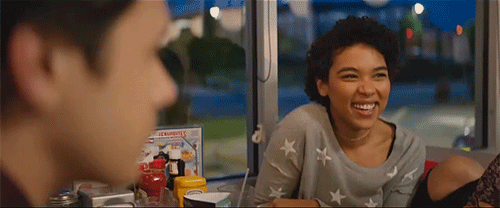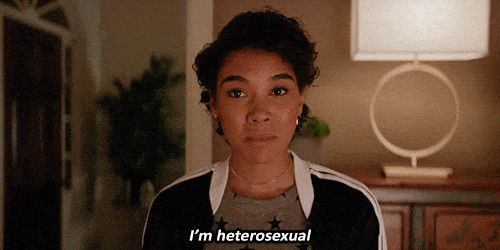If you have gone to a movie theater recently and watched the upcoming film trailers, the likelihood is high that you, like me, were underwhelmed.
Most of the upcoming films are either the usual romantic comedies (Mamma Mia! Here We Go Again) or action thrillers (A Quiet Place). Nothing out of the ordinary. If anything, more of the same that we see every year.
However, the film that many people are talking about is Love Simon, which was released in select theaters on March 16. The film follows Simon Spier (Nick Robinson), who is a closeted high school student, as he tries to navigate telling his family and best friends that he is gay.
Throughout the film, Simon encounters obstacles that prevent him from telling his loved ones that he is gay. Nonetheless, the coming-of-age story is touching to all who watch, and the following 10 reasons are why everyone should go see the film.
1. Realistic casting
The casting for the characters in Love, Simon was excellent, and perhaps the best aspect was that the main high school students were not 40-year-old actors. Although they were all either in their early or late-20’s, it was not a long time since these actors were in school themselves. For that reason, the way that they behaved felt more authentic than other films that are looking for skilled, veteran actors than ones that viewers can connect with while watching.
2. Simon's parents
Simon’s parents Jack and Emily Spier were portrayed by Josh Duhamel and Jennifer Garner, respectively. Throughout the film, Simon fears how his parents will react to him being gay. He highlights that fear in one early instance when he acknowledges that his mother is liberal, but the unspoken fear is that it is often easier to support someone else when it does not directly affect your own life. Additionally, there are moments when his father makes uncouth comments that make him hesitate in telling them about himself.
3. Kids behave like kids
So often in coming-of-age films, we are shown these characters that do not act like they are in high school at all. Most commonly, it is when they go to parties or flirt with their peers, and they come off polished like they have done it for years. Love, Simon allows the kids to “drink too much coffee” and carb-load, while also awkwardly flirting with their crushes like all high-schoolers once did. It is bumpy and sometimes painful to watch, but living through high school was much like that.
4. Realistic use of social media
The students in Love, Simon are obsessed with social media, and what else is new? They are the generation that grew up plugged in before they were cognizant of the meaning of “social media” and it shows. Nonetheless, it is not heavy-handed, which is important since the plot relies on its use, and it shows how social media can be used as a weapon against people.
5. Diversity
The great part about Love, Simon is that it did not whitewash being gay and the film itself featured diversity that is often found in high school more than any other place. Although the film focused on a white, upper-middle class gay male, it did strive to show students of different races and backgrounds. Additionally, although Simon was shown as someone who could “pass” for straight, it showed another gay student, who was open about his sexuality throughout the film, and was more effeminate. The diversity helped show that neither archetype was “better”, but they were merely different from one another and should not be lumped together.
6. No "reveal" of gay antagonist
Without revealing too much of the film, Simon is blackmailed by a classmate when the latter discovers Simon’s emails with another closeted gay student. At the end of the film, Simon does a grand gesture to encourage his unknown pen pal to tell him who he is, and the student who blackmailed him says it is him. Afterwards, when Simon says that he is lying, the blackmailer admits that it is not him, likely a jab at any film where the antagonist is revealed to have always hated his sexuality, but “came to his senses.” The shift is refreshing, especially given the fact that Hollywood is finally starting to realize that gay people do not inherently hate themselves.
7. Affection is shown naturally
Toward the end of the film when Simon discovers the identity of his pen pal, they kiss on several occasions. Unlike older films when the protagonist was gay, but could not touch his love interest (An Early Frost) it is clear that we are finally moving toward a time when affection is normalized. What is even better is that it is shown at a younger age, normalizing these emotions for high school students who may be experiencing the same emotions. Moreover, these interactions between Simon and his pen pal do become more natural in the final minutes of the film, with a kiss of greeting exchanged like any couple does.
8. Soundtrack
I would be remiss to not mention the incredible soundtrack for Love, Simon. My favorite songs include: “Alfie’s Song (Not So Typical Love Song)” by Bleachers, “Strawberries & Cigarettes” by Troye Sivan, and “Wild Heart” by Bleachers. Not to mention, the first song was co-written by Harry Styles. How could you go wrong with a line-up like that?
9. Humor
One of the aspects of the film that made it so enjoyable was the humorous moments. Whether it is the vice-principal Mr. Worth (Tony Hale) trying to be “one-of-the-students” or when Simon imagines his friends having a “straight coming out,” it is difficult not to laugh at the absurdity. Another laugh-worthy moment is when Simon’s father suggests that the two of them join Grindr, thinking that the app is a “Facebook for gay people,” which Simon assures him that it is not.
10. Perfect for any age
When I went to the movie theater to see the film, the demographic was mixed. There were young girls, as well as older men and families in the audience. What brought so many people of different backgrounds together were the emotions that the film evokes, and how the film produces love and support that is absent in similar films. Perhaps the most memorable moment was when Simon asked his mother if she had known he was gay. When she said that she knew he was keeping a secret because when he was young, he was carefree and over the last few years, it felt as though he was holding his breath, the similarity of feeling in the movie theater was palpable. Likewise, when she told him that he could exhale, there was a collective moment of catharsis, as if she said the same to the audience.




























